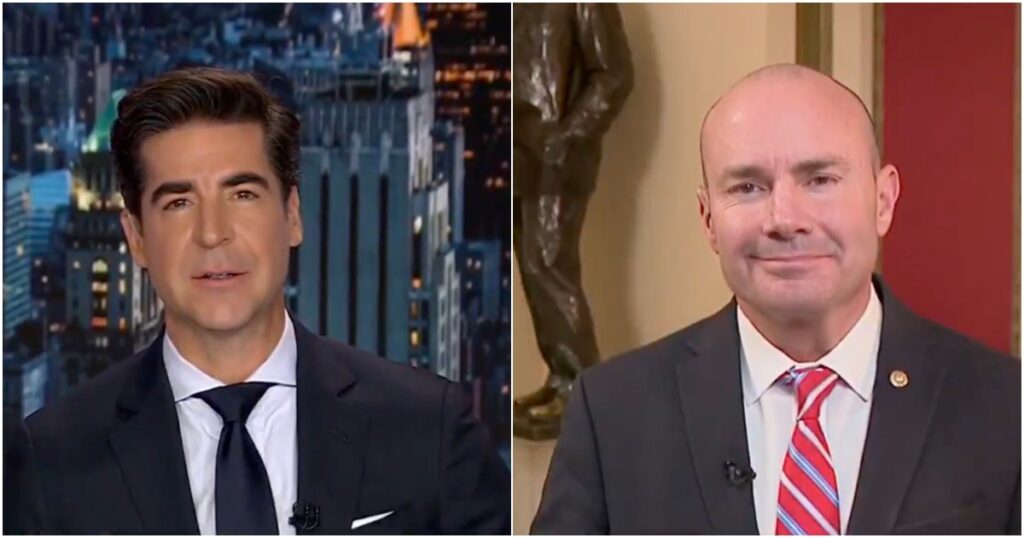In a recent appearance on Jesse Watters’ Primetime, Senator Mike Lee (R-UT) launched a blistering critique of prominent congressional leaders, alleging a significant betrayal of the American electorate over a newly proposed $1.7 trillion spending bill. Lee specifically called out Senate Majority Leader Chuck Schumer (D-NY), Senate Minority Leader Mitch McConnell (R-KY), House Minority Leader Hakeem Jeffries (D-NY), and House Speaker Mike Johnson (R-LA) for conducting secret negotiations that lasted 85 days without public knowledge. Lee described this clandestine approach as a violation of transparency, labeling it a historic moment of accountability that could have significant repercussions for the political landscape, including a questionable future for Speaker Johnson’s position.
Senator Lee’s allegations paint a bleak picture of congressional negotiations, as he argues that the resulting legislation is marred by a lack of public engagement and awareness. He emphasized that the bill’s failure to gain traction is emblematic of a broader disillusionment within the American populace, who now have various platforms and channels to access and analyze information quickly. According to Lee, the dynamics in Washington, D.C., have fundamentally shifted, making it increasingly difficult for entrenched political deals to go unnoticed or unchallenged. His remarks indicate a growing sense of frustration among constituents who expect their representatives to uphold the principles of openness in governmental dealings.
Lee’s critique was not merely limited to observations; he advocated for a radical shift in leadership, suggesting that traditional politicians are out of touch with the needs and desires of the American people. He floated two unconventional candidates for Speaker of the House: entrepreneur Vivek Ramaswamy and tech mogul Elon Musk. By proposing these figures, Lee sought to make a point about the need for bold, new leadership—leaders who are not entrenched in the existing political framework and who possess fresh perspectives on governance and engagement with the electorate. In doing so, he expressed a desire for a more dynamic and responsive form of leadership that resonates with contemporary American values and aspirations.
During his exchange with Jesse Watters, Lee articulated his views on the reception of Ramaswamy and Musk within the Republican caucus in Congress. He noted that their potential candidacies generated significant enthusiasm and respect among party members, signaling a willingness to embrace leadership that could invigorate GOP dynamics. Lee’s comments also indicated a recognition of the changing political landscape where the association with influential entrepreneurial figures might offer a strategic advantage in mobilizing support and fostering innovation in policy-making.
However, Lee remained somewhat skeptical about whether Ramaswamy or Musk would be interested in pursuing the role of House Speaker amid their other commitments. While acknowledging Musk’s many ventures, Lee indicated that Ramaswamy may be more open to the idea, reflecting an understanding of the challenges that come with seeking such a public and demanding political position. He passionately encouraged these figures, urging them to consider stepping up as leaders at a critical juncture for American politics, thereby opening the door for an unorthodox approach to governance.
In a concluding note, Senator Lee recognized the potential backlash his remarks might solicit, particularly from Speaker Johnson, due to the implications of his statements. Despite expressing admiration for Johnson and acknowledging their friendship, Lee maintained that it was essential for a reevaluation of existing leadership in light of the Party’s failure to effectively represent the interests of Americans. By throwing his support behind Ramaswamy and Musk, Lee aimed to challenge the status quo, advocating for a leadership style that prioritizes transparency, accountability, and innovative thinking, seeking to unite the disenchanted electorate for a brighter political future.

